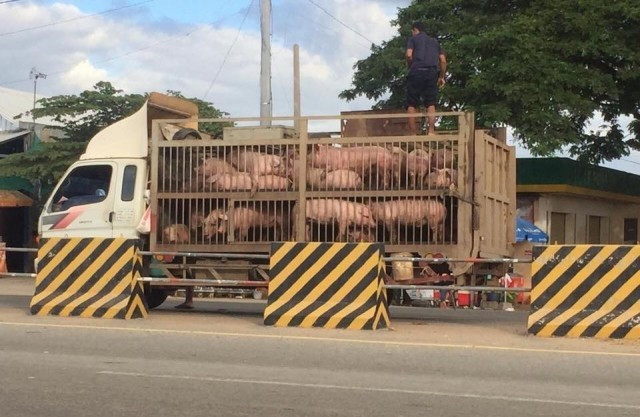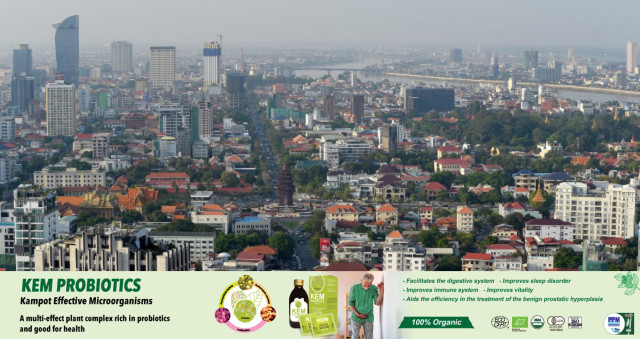Cambodian Pig Farmers Fear “Excessive” Imports from Thailand

- By Khorn Nary
- July 21, 2021 5:37 PM
While domestic pig farmers struggle to meet local demand, the Ministry of Agriculture’s decision to allow more imports of live pigs from Thailand has prompted concerns that the market will be undercut
PHNOM PENH--The Ministry of Agriculture’s General Directorate of Animal Health and Production announced on July 18 that it would allow the import of live pigs from 10 companies in Thailand, but the announcement has prompted fears among local pig farmers that their businesses will be undercut by cheaper imported meat.
As such, farmers are now calling on the government to set a quota on live pig imports and to establish a means of quality control to ensure the safety of the goods received.
Miech Puthea, a pig farmer in Pursat Province, said he did not object to the decision of the Agriculture Ministry to approve the live pig imports from Thailand, but he did not want to see excessive imports that will affect the markets of the domestic pig farmers.
“Currently, the market price of live pigs is between 12,500 riels and 13,000 riels [$3.07-$3.20], which is acceptable for me,” Puthea said.
“I think that there are a lot of local pig farmers nowadays. Therefore, if there is a shortage of pork supply, it will not be much. Moreover, if the ministry allows the imports to exceed the domestic demand, local pig farmers will be affected and the price may plummet further,” he warned.
Puthea currently has a total of about 300 pigs in Lolok Sa village, Lolok Sa commune, Pursat Province. Despite the COVID-19 pandemic, Puthea said he could still sell live pigs to local traders.
President of the Cambodian Pig Raiser Association, Srun Pov, said that Cambodia was not yet able to supply enough pork to the local market but requested that the Agriculture Ministry properly monitor the health of animals and import only the necessary live pigs to ensure the safety of consumers and avoid harming the businesses of domestic pig farmers.
“The import of live pigs from foreign countries can affect local farmers if the ministry does not properly monitor them,” Pov said. “However, we support the import of live pigs because our daily supply is still lacking.”
He added Cambodia imports 1,000 live pigs per day, which he said does not pose a threat to domestic pig farmers.
“The quality and price of imported pigs is no different from domestic pigs,” Pov said. “But I’m concerned that illegal traders will try to take advantage of the new rule and will try to illegally smuggle pigs into Cambodia—that will affect both our business and public health.”
According to Pov, Cambodia needs around 8,000 live pigs each day, but domestic farmers can only supply some 7,000. The remaining 1,000 needed to meet demand are currently coming from six companies in Thailand, but another four companies have applied to gain export licenses for Cambodia.
Another problem, Pov cautioned, was the price of pork production which fluctuated between 7,500 riels and 9,000 riels per kilogram prior to the pandemic. These days, he said, production costs have increased to as much as 12,000 riels per kilogram as COVID-19 has strained the global movement of goods needed.
But while production costs have increased for domestic pig farmers, the price of domestic pigs has not changed—remaining stable at between 10,500 riels and 13,600 riels per kilogram. Despite this challenge, pig farming has actually increased in Cambodia over the course of the pandemic, with Pov noting that 61 new pig farms were established in the first six months of 2021, including seven breeding farms.
Additional reporting by Teng Yalirozy















